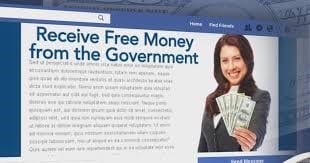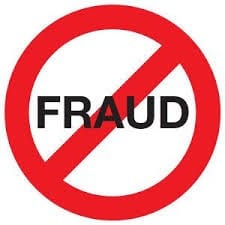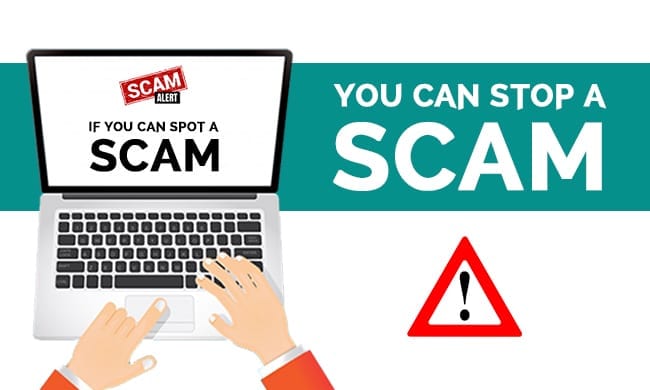US government is trying to prevent the frauds which are affecting the interest of many citizens. Thus US is dealing with a numberof scams or frauds form last many years. Mainly with the increase of internet usage and data sharing platforms, it becomes easy forthefraudsters to con the interest of common man. Thus here we will discuss few of the most common frauds which are reported by US citizens from the last few years.
On the basis of such complaints reported at the state or with the US cybercrime department and FBI, we have curated few of the most common frauds prevailing in US are:
Telephone Scams

Phone tricksters attempt to take your cash or individual data. Tricks may come through telephone calls from genuine individuals, robot or automatic calls, or instant messages. The guests frequently make false guarantees, for example, chances to purchase items, contribute your cash, or get free item preliminaries. They may likewise offer you cash through free concedes and lotteries. A few con artists may call with dangers of prison or claims on the off chance that you don’t pay them.
Philanthropy/charity Scams
A few tricksters set up phony associations, to exploit the people generosity. They are the tricksters who take advantage of any man made or natural tragedies and disasters.
Ticket Scams
Ticket selling tricks happen when a con artist uses tickets as goad to take your cash. The con artist generally sells phony tickets or you pay for a ticket, however never get it. They are basic when tickets for well-known shows, plays, and games sell out. Con artists, including people and phony resale organizations, exploit the circumstance by:
- Charging costs a lot higher than the presumptive worth of a ticket
- Making fake tickets with forged scanner tags and logos of genuine ticket organizations
- Selling copies of a genuine ticket and messaging it to a few purchasers.
- Claiming to offer tickets online to take your credit card data
Lottery and Sweepstakes Scams

Prize tricksters endeavour to get your cash or individual data through phony lotteries, sweepstakes, or different challenges. Many case that you’ve won a prize yet should pay a charge to gather it. Others expect you to give individual data to enter a “challenge.” These tricks may contact you by postal mail, email, telephone call, robocall, or instant message. State and neighbourhood laws oversee authentic lotteries and sweepstakes. State lotteries distribute their outcomes on the web or communicate them on TV, not by reaching you straightforwardly.
Investment Scams
Investment trickspromise to provide you a high rateof returns without any financial risk involved inthe same.
Banking Scams
 Banking tricks include endeavours to get to your ledger. Some mainstream banking tricks include:
Banking tricks include endeavours to get to your ledger. Some mainstream banking tricks include:
Excessive charge tricks – A trick craftsman sends you a fake check. They guide you to store it in your financial balance, and wire some portion of the cash back to them. Since the check was phony, you’ll need to pay your bank the measure of the check, in addition to you’ll lose any cash you wired.
Spontaneous check extortion – A con artist sends you a check for reasons unknown. In the event that you money it, you might approve the buy of things or agreeing to accept an advance you didn’t request.
Programmed withdrawals – An organization sets up a programmed charge from your financial balance, as a major aspect of a free preliminary or to gather lottery rewards.
Phishing – You get an email message that requests that you check your ledger or credit card number.
Census Related Fraud
The U.S. census Bureau gathers information about the general population and economy of the United States. It gathers individual and statistic data from individuals and organizations. Some tricksters may claim to be work for the Census Bureau. They’ll endeavour to gather your own data to use for misrepresentation or to take your information. These trick specialists may send you letters that appear to originate from the U.S. Evaluation Bureau. Others may go to your home to gather data about you.
Government Grant Scams
 Government grant con tricksters attempt to get your cash by ensuring a free give to enable you to pay for school, home fixes, or different costs. They request your financial records data so they can “store the allow cash into your record” or pull back a “one-time processing expense.” In all actuality, the administration once in a while gives cash to people. It’s for the most part granted to state and nearby governments, colleges, and different associations to pay for research and ventures that advantage people in general.
Government grant con tricksters attempt to get your cash by ensuring a free give to enable you to pay for school, home fixes, or different costs. They request your financial records data so they can “store the allow cash into your record” or pull back a “one-time processing expense.” In all actuality, the administration once in a while gives cash to people. It’s for the most part granted to state and nearby governments, colleges, and different associations to pay for research and ventures that advantage people in general.
Networking letters
These letters guarantee to enable you to get rich rapidly in the case, that you take an interest and forward the letter on to your loved ones.
Dating tricks
Scammers may make phony profiles on online dating locales and express enthusiasm for you, to make sure the person can persuade you to send them cash.
Free security filters
Don’t be deceived by messages on your PC screen that guarantee that your machine is as of now tainted with an infection. The practical, yet fake, security alarms misuse your dread of online infections and security dangers.
Job guarantee tricks
Be always aware of the thing that if any one promise or guarantees you a job in the return of any cash or money which needs to be paid to the company account due to any need or requirement. Even if they usedto call it a refundable deposit. It is also a scamwhere you need to pay cash or supply your carddetails to an organization to apply for work.
Phantom obligation tricks
Beware of letters and calls, probably from “debt authorities” or “court authorities”. These con artists make threatening calls and claims you to pay cash that you don’t even owe.
Tricks that utilizes the names of the FBI or CIA
Avoid succumbing to email plans including spontaneous email as far as anyone knows sent by the Federal Bureau of Investigation (FBI) or potentially Central Intelligence Agency (CIA). The email seems, by all accounts, to be sent from email tends to, for example, mail@fbi.gov, post@fbi.gov, admin@fbi.gov, and admin@cia.gov.
Reporting the scams or frauds

With such a significant number of sorts of tricks and frauds, it’s difficult to make sense of where to report each type. Initially, document a report with your neighbourhood police division. You may likewise contact your state customer protection office. You can likewise report particular kinds of tricks and misrepresentation to federal enforcement agencies or organizations. In accordance to the type of fraud the responsibility is being divided to some federal agencies. Thus few of them are:
- Common type of scams and fraud like the sweepstakes, lottery and more- You need to contact the Federal Trade Commission (FTC) or one may also mark an online complaint to report such frauds.
- In the case of any federal frauds which includes Census fraud, government grant fraud, banking scams or more- then you may simply contact the regional offices of such government departments.
- For all the technology related fraud like internet fraud, system fraud, personal data leakage and more- one may need to submit a complaint to the cyber cells or internet crimecompliantcentres
- For the telephone scam calls- report to the Federal Communications Commission about all such suspicious or scam calls.
These are the some of the common scams which has been reported by the Government. Thus, secure or safeguard your interest by always be aware of the things which we have discussed above.Otherthan this, neverbelieve on any such schemes or promises which offers maximum easy profits with less or no investment and more. As thereis nothing like a free lunch in the world. Thus, believe in yourself other than on such lucrative schemes.
[/et_pb_text][/et_pb_column][/et_pb_row][/et_pb_section]


